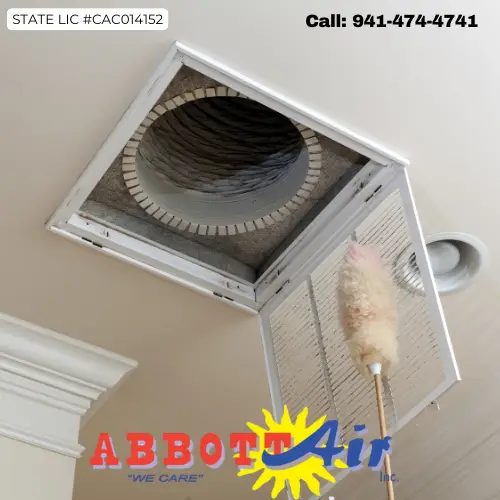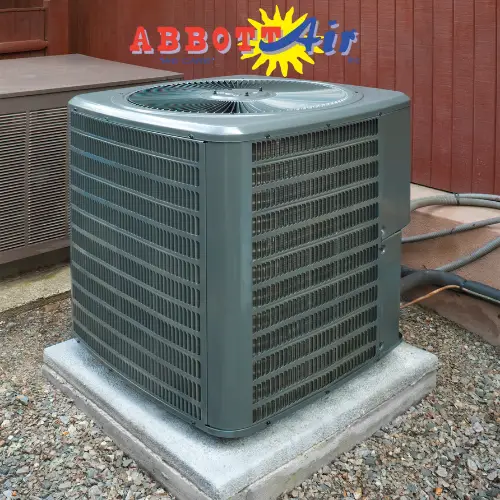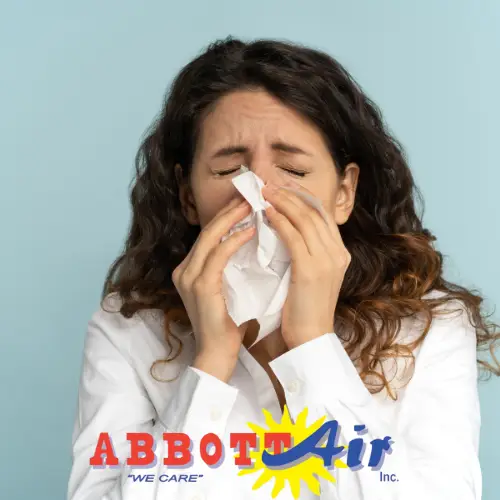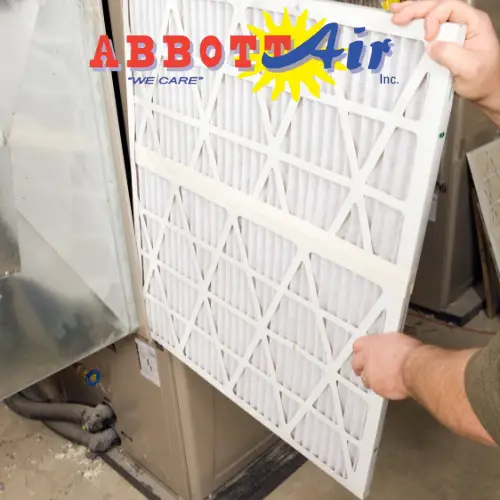Florida’s warm, humid climate makes air conditioning a necessity—but it also creates the perfect breeding ground for organic growth inside HVAC systems. In Englewood, Port Charlotte, Venice, North Port, Boca Grande, and Rotonda, where high humidity and frequent storms are common, hidden organic growth in AC units can spread unseen, worsening indoor air quality and triggering health problems. Personally, we've gone through hurricanes and the water damage from these storms like Hurricane Milton can linger long after the fact.
Many homeowners and property managers don’t realize that organic growth in air ducts, evaporator coils, and drain pans can circulate spores throughout their homes, leading to respiratory issues, allergies, and even long-term lung damage. If you’ve noticed a musty smell from vents, increased allergy symptoms, or black or green growth near your AC unit, your system may already be contaminated. But don't despair, we will discuss as recommended below from the owners of Abbott Air, Andy and AJ Abbott, various routes and actions you can take.

In this guide, we’ll cover:
✅ Where organic growth hides in HVAC systems (and why Florida’s climate makes it worse)
✅ Health risks of organic growth exposure—from allergies to chronic illness
✅ Signs your AC has organic growth (and how to inspect it yourself)
✅ Prevention & professional solutions to keep your system clean
✅ Why regular HVAC maintenance is critical in Southwest Florida
By the end, you’ll know how to detect, prevent, and eliminate organic growth before it becomes a major health hazard.
Florida’s tropical climate—with its high humidity, frequent rain, and warm temperatures—creates ideal conditions for organic growth. When your AC runs, it pulls in moist air, and if the system isn’t properly maintained, condensation builds up in dark, enclosed spaces where organic growth spores can multiply.

After Hurricane Milton, many of us personally saw how flooding and prolonged moisture created the perfect environment for organic growth inside and around our AC systems. The heavy rains and standing water not only stressed equipment but also increased the risk of hidden organic growth in coils, ducts, and drain lines.
After hurricanes or heavy storms (like those we see in Englewood and North Port), flooding and power outages can lead to:
If your home experienced water damage from Hurricane Ian or other storms, your HVAC system may still harbor hidden organic growth.
Abbott Air can inspect your HVAC system for hidden organic growth, clean and sanitize affected parts like coils, drain pans, and ductwork, and replace filters or insulation if needed. We’ll also ensure the system is fully dried and restored to safe, efficient operation so it doesn’t continue spreading organic growth through your home.

Exposure to airborne organic growth spores can cause a range of health problems, especially for children, the elderly, and those with respiratory conditions.
Common symptoms include:
Short-Term Exposure
✔ Sneezing & nasal congestion
✔ Coughing & wheezing
✔ Itchy, watery eyes
✔ Skin rashes
✔ Headaches & fatigue
Long-Term Exposure
✔ Chronic sinus infections
✔ Asthma development or worsening
✔ Bronchitis & pneumonia
✔ Lung infections (in immunocompromised individuals)
✔ Neurological issues (from toxic black organic growth)
If you or your family experience unexplained allergy symptoms that improve when away from home, your AC system may be the culprit.

How can you tell if organic growth is growing inside your HVAC system? Look for these warning signs:

If you suspect deep organic growth contamination, DIY methods won’t be enough. Abbott Air in Englewood recommends professional HVAC organic growth remediation if:
✅ You see extensive organic growth inside the system.
✅ The musty smell persists after cleaning.
✅ Family members have worsening respiratory issues.
✅ Your AC has standing water or severe clogs.
Organic growth in your AC system isn’t just a nuisance—it’s a health hazard. In Southwest Florida’s humid climate, organic growth can spread quickly, leading to respiratory problems, allergies, and even long-term illness.
If you’ve noticed musty smells, poor airflow, or allergy flare-ups, your HVAC system may be contaminated. The best defense is prevention—regular AC maintenance, proper humidity control, and prompt organic growth removal when needed.
Disclaimer: The information provided on this website' and blog is for general informational purposes only. All information on the blog is provided in good faith, however, we make no representation or warranty of any kind, express or implied, regarding the accuracy, adequacy, validity, reliability, availability, or completeness of any information on the site. We encourage our readers to conduct their own research and due diligence. The website and its authors are not liable for any errors or omissions in this information nor for the availability of this information. Any action you take upon the information you find on this blog is strictly at your own risk. The content may change over time, and some information may become outdated after the time of publication. We are not responsible for the views, opinions, or accuracy of facts referenced in our articles, as they are meant for informational purposes only.
By sharing we can help family and friends that might need future Air Conditioning Services. We are currently working within Venice, Englewood, North Port and surrounding areas with plans to expand further. Please feel free to share from our social media platforms mentions below.
FACEBOOK:
Come join us on Facebook where we share weekly events and happenings. Stay up-to-date with us on Facebook!

INSTAGRAM:
Our brag rights are all posted to Instagram and we hope you will enjoy the photos and reels shared on here!
